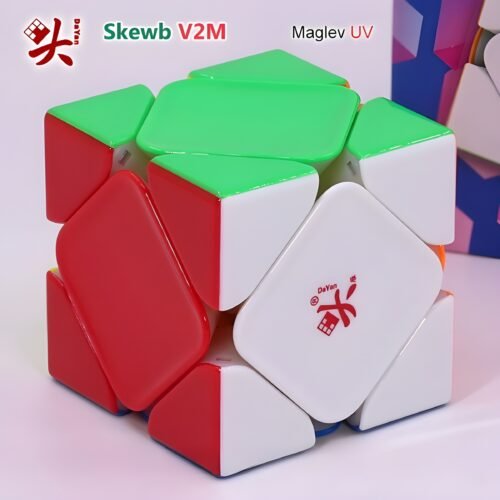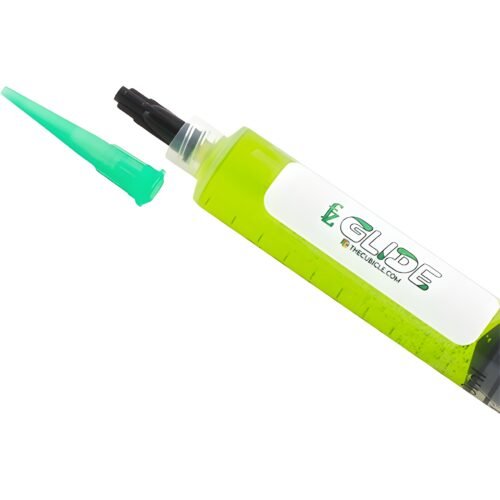
Introduction to the guide
The thrill of a Rubik’s Cube competition, with its intense focus, lightning-fast turns, and passionate community, is undeniable. If you’ve ever dreamt of bringing that excitement to your city, hosting a World Cube Association (WCA) sanctioned event is the way to go. This comprehensive guide will walk you through the essential steps, from initial planning to post-event wrap-up, ensuring your competition is a smashing success.
Table of Contents
Why Host a WCA Competition?
Hosting a WCA competition isn’t just about speed; it’s about fostering community, providing a platform for cubers to test their skills officially, and contributing to the global speedcubing movement. WCA-sanctioned events ensure fair play, consistent rules, and validated results that contribute to official rankings.
Phase 1: Initial Planning & WCA Liaison
1. Understand the WCA Regulations:
The World Cube Association has a detailed set of regulations that govern all official competitions. Before anything else, immerse yourself in these rules. They cover everything from puzzle requirements and judging procedures to disqualifications and competition formats. You can find them on the official WCA website (worldcubeassociation.org).
2. Find Your WCA Delegate:
This is perhaps the most crucial first step. A WCA Delegate is an authorized representative of the WCA who oversees the competition to ensure it adheres to all regulations. You cannot host an official competition without a WCA Delegate present.
- Contacting a Delegate: Visit the WCA website’s “Delegates” section to find delegates in your region. It’s advisable to connect with one who lives closest to your proposed venue to potentially reduce their travel expenses.
- Delegate’s Role: The Delegate is your primary point of contact and will guide you through the entire process, approve your plans, and be the ultimate authority on competition day.
3. Choose a Suitable Venue:
The venue is the heart of your competition. It needs to be conducive to cubing and meet WCA requirements.
- Space: Ample space for competitors, judging stations, a waiting area, and spectators is essential. A stage or a designated competition area separated from the public is highly recommended (spectators should be at least 1.5m away from competitors).
- Tables and Chairs: You’ll need enough tables (approximately one table for every 6 competitors for smaller events, with 10 tables often sufficient for up to 100 competitors) and two chairs per table.
- Lighting & Temperature: Pleasant ambient temperature and bright, white lighting are crucial for optimal performance.
- Power Outlets: Sufficient power sockets are needed for timers, displays, and computers. Ensure all wires are safely covered to prevent tripping hazards.
- Amenities: Consider restrooms, nearby food/drink options, and accessibility for all attendees.
- Cost: Research venue rental fees and any additional charges (e.g., for projectors, sound systems). Schools or universities can often be cost-effective options, especially if you have a connection.
- Venue Agreement: Verify legal requirements and be prepared to sign a contract. Liability insurance might also be required.
4. Set the Date and Competition Name:
Work with your WCA Delegate to choose a date that doesn’t clash with other major competitions in the region. Your competition name should include the year (e.g., “Delhi Open 2026”).
Phase 2: Application & Setup
1. Submit the WCA Competition Application:
Once you have a venue and a date, and your Delegate is on board, you’ll need to complete the Online WCA Competition Application Form. This form requires details about the competition, including:
- Proposed dates and events
- Venue name and address
- Expected participation numbers
- Your organizer name (you’ll need a WCA account)
- A detailed budget plan
- An emergency plan
2. Budgeting Your Competition:
A well-structured budget is key to financial success.
- Expenses:
- Venue rental fees
- Equipment (timers, mats, judge stopwatches – your Delegate might bring some, but it’s good to have spares or rent/buy)
- Puzzles for officials (if needed)
- Printing (score sheets, name tags, schedules, posters, banners)
- Volunteer food/refreshments
- Delegate expenses (transportation, accommodation – these are often reimbursed, not paid as a salary, as WCA Delegates are volunteers)
- Prizes/souvenirs (optional)
- Marketing/promotion (optional)
- Income:
- Registration fees (the most common source)
- Sponsorships (cube stores, local businesses)
- Merchandise sales (if allowed by the venue and local laws)
- Donations
3. Acquire Essential Equipment:
While your Delegate will bring critical WCA-specific equipment like official Stackmat timers and mats, you’ll need to ensure other necessities are available:
- Timing Stations: Tables, chairs, Stackmat timers, mats, judge stopwatches, pens.
- Scramblers: Designated area for scramblers to prepare puzzles.
- Computers: At least one computer for data entry (connected to the internet for WCA Live results), ideally a second for displaying scrambles.
- Printer: Highly recommended for printing score sheets and other documents.
- Display Screens/Projectors: To show scrambles, results, and general announcements.
- Sound System: For announcements.
- First Aid Kit: Essential for any public event.
- Signage: Clear signs for registration, events, restrooms, etc.
- Ribbons/Cords: To separate competition areas from spectators.
4. Recruit and Train Volunteers:
Volunteers are the backbone of any successful competition.
- Roles: Judges, runners (collecting scorecards), data entry, registration desk, crowd control, setup/teardown.
- Training: Provide clear instructions on WCA regulations, judging procedures, and their specific tasks. Even first-time competitors can be trained to judge.
Phase 3: Pre-Competition & Registration
1. Create the Competition Website:
The WCA will generate an official competition page once your application is approved. This page will be your central hub for information. Ensure it contains:
- Competition name, date, and venue details
- Registration dates and fees
- List of events
- WCA regulations link
- Schedule
- Contact information for organizers and Delegate
- Accommodation and travel information (if applicable)
2. Manage Registrations:
- WCA Website Registration: It’s highly recommended to use the WCA website for registrations as it integrates with tools like WCA Live and Groupifier.
- Clear Requirements: Clearly state all registration requirements (e.g., payment methods) on the website.
- Approval: Manually approve registrations promptly to avoid competitor frustration.
- Waiting List: If you exceed your competitor limit, maintain a waiting list and accept competitors in the order of completed registration.
- On-the-Spot Registration: Decide in advance whether you will allow on-the-spot registrations, and clearly communicate this. If so, gather necessary WCA ID information for new competitors.
3. Marketing and Promotion:
Spread the word to attract competitors!
- Social Media: Create event pages on platforms popular with the cubing community.
- Mcubes: mcubes provides free ads through our platforms, please reach one week before the registration starts.
- Local Clubs/Universities: Reach out to cubing clubs in schools and universities.
- Local Media: Consider contacting local newspapers or community channels.
Phase 4: Competition Day!
1. Early Setup:
Arrive at the venue well in advance with your Delegate and volunteers to set up.
- Arrange tables and chairs.
- Set up timing stations with timers, mats, and scorecards.
- Configure computers for data entry and scrambles.
- Set up display screens/projectors and sound system.
- Place signage.
2. Registration Desk:
- Efficiently check in registered competitors and handle any on-the-spot registrations.
- Distribute name badges (if applicable).
- Verify WCA IDs or create new ones for first-time competitors.
3. Briefing for Competitors and Judges:
- Competitors: Hold a brief opening ceremony and explain the flow of the competition, general rules, and where to find their groups/scrambles.
- Judges: Provide a refresher on judging procedures, penalties, and how to fill out scorecards correctly. Emphasize vigilance and fairness.
4. Running the Rounds:
- Scrambling: Ensure scramblers are generating puzzles according to WCA standards (using TNoodle software, usually provided by the Delegate).
- Judging: Volunteers judge attempts, ensuring compliance with WCA regulations.
- Data Entry: Promptly enter results into the WCA competition software (often WCA Live or Cubecomps) for real-time updates.
- Announcements: Keep competitors informed about upcoming events, group calls, and any schedule changes.
- Troubleshooting: Be prepared for technical issues, rule disputes (defer to the Delegate), and competitor concerns.
5. Finals and Awards:
- Ensure finalists are aware of their scheduled times and any special rules for finals.
- Prepare prizes (if any) and conduct an awards ceremony.
Phase 5: Post-Competition
1. Data Finalization:
- Work with your Delegate to ensure all results are accurately entered and verified.
- The Delegate will submit the official results to the WCA.
2. Feedback and Review:
- Gather feedback from competitors, volunteers, and your Delegate. What went well? What could be improved?
- Conduct a financial review to compare actual expenses and income to your budget.
3. Thank Yous:
- Thank all your volunteers, sponsors, the venue staff, and especially your WCA Delegate for their invaluable contributions.
Where to Buy Cubes for Your Competition or Personal Use:
Having good quality cubes is essential for both competitors and for potential side activities or prizes at your competition.
- For India:
- Mcubes India (themcubes.in): Mcubes India is a prominent online store in India for speedcubes and accessories. They offer a wide range of cubes from various brands, including budget-friendly options and high-end magnetic speedcubes. Their website, themcubes.in, is a reliable source for purchasing cubes within India, offering secure payments and quality-checked products. You’ll find everything from 3x3s to larger puzzles, lubricants, and timers.
- For Outside India (Global):
- Mcubes Global (mcubes global): While mcubes.in primarily caters to the Indian market, they also have a global presence. For international purchases, you’ll generally find their products and a broader selection on mcubes global. Many international cubing stores also exist, but Mcubes Global aims to provide a similar trusted experience for cubers worldwide.
Learning to Cube with Mcubes X:
For new cubers or those looking to improve their times, quality instruction is invaluable.
- Mcubes X: Mcubes offers educational resources, including courses, to help cubers of all levels. While specific details on “Mcubes X” as a dedicated course platform might vary, Mcubes India (themcubes.in) does offer 3x3x3 Rubik’s Cube coaching for beginners, often in a 1-on-1 live class format. These courses are designed to teach fundamental solving methods, helping aspiring speedcubers get started on their journey. Check their “Courses” section on the themcubes.in website for the latest offerings and pricing. Learning the basics or refining techniques through such courses can significantly enhance a competitor’s experience and enjoyment of the sport.
Hosting a WCA Rubik’s Cube competition is a rewarding endeavor that brings together a vibrant community. With meticulous planning, adherence to WCA regulations, and a dedicated team, your event can be a memorable and successful contribution to the world of speedcubing. Good luck!







